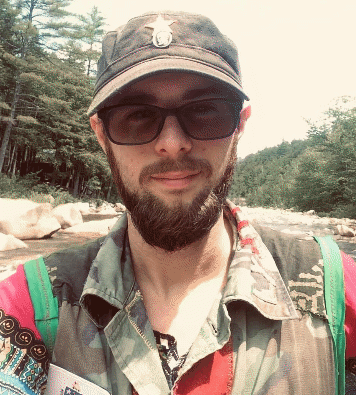By: Louis Yarid –
Valley Patriot Resident Communist
5/24
 The short answer is yes… Massachusetts CAN facilitate more Indian Reservations. Case and point: Why do they call it Cherokee Nation and not simply a United Cherokee Reservation? When President Jackson ordered the forced removal of Tuscarora, Cherokee, Seminole, Creek, Choctaw, and Chickasaw people from their tribal lands (thus causing the Trail of Tears), Jackson would never in his lifetime realize the civil rights he gave to Native Americans by removing them from their native lands and giving them other land concessions which started the Reservation Program allowing Native Americans to claim reservations over the landmasses they resettled to.
The short answer is yes… Massachusetts CAN facilitate more Indian Reservations. Case and point: Why do they call it Cherokee Nation and not simply a United Cherokee Reservation? When President Jackson ordered the forced removal of Tuscarora, Cherokee, Seminole, Creek, Choctaw, and Chickasaw people from their tribal lands (thus causing the Trail of Tears), Jackson would never in his lifetime realize the civil rights he gave to Native Americans by removing them from their native lands and giving them other land concessions which started the Reservation Program allowing Native Americans to claim reservations over the landmasses they resettled to.
What does this have to do with Massachusetts today, you might ask?
Only this: Over the years, Massachusetts has become a hub and centralized focal point of the American Immigration system. During the Civil War, African Americans, including members of the Gullah Tribe (the only Nationally recognized Reservation for African Americans) and all other Indian Reservations that allied themselves with the Confederate States came specifically to Massachusetts for their right to fight against the Confederacy due to the advent of our own 54th Massachusetts Infantry Regiment being one of the only colored Regiments in the USA at first.
Despite better conditions in Canada, African Americans saw Massachusetts as a model for what the entire country could look like given our track record of racial cooperation since our Constitutional ratification.
This fact walked hand-in-hand with the policy of using Native Americans as scouts, translators, and strategists who would end up getting absolutely no credit for their winning strategies just like General Ely S. Parker (Chief of the Seneca, General of Native American scouts, and Commissioner of the US Bureau of Indian Affairs who was the chief strategist and aide-de-camp of Major General Ulysses S. Grant, and was never given credit for a single winning strategy of Grant’s).
Today, thousands of people with Native bloodlines from the Caribbean have moved from Puerto Rico, the Dominican Republic, Cuba, and even the US Virgin Islands to Lawrence, MA. All of these people have one thing in common… they were all once invaded and occupied by the US Army & Government. This gives every single one of these former and current US Territories the unique legal ability to claim reservations wherever they become a majority in America given their historical precedent of being integrated into American society and occupied by American forces that took advantage of their people.
Due to the fact that there are Cherokee Reservations in North Carolina, Oklahoma, and Arizona; Navajo Reservations in New Mexico, Arizona, Utah, and Colorado; as well as others who were all forcibly removed from their original lands, the people of Lawrence with their high population with Taino, Guanahatabey, Kalinago/Kalina (Caribs) & Ciguayo bloodlines have the right to claim a reservation for each tribe and begin the legal process of claiming one. North could be set aside for the Tainos & Kalinago/Kalina, and South could be reserved for the Ciguayo and Guanahatabey tribes respectively, or they could all share the city. This is an important solvable issue to address and begin real Native and African American reparations, because the conversation started over a hundred years ago. Ever since the Rough Riders of the US Volunteers’ Division liberated Cuba, Puerto Rico, the Dominican Republic, and the Philippines in the Spanish-American War, the USA has been a safe haven for them despite their never-ending persecution as immigrants of color.
That being said, Lawrence could do a lot better for their people of Native descent. Their representation in the Fire and Police Departments have climbed steadily over the years, however something must be said for the concessions that would be available for the citizens who are not related to any Native Caribbeans should a reservation be claimed. The many reservations of the United States already support processes for non-Native citizens to become citizens of their reservations… usually through marriage, which makes the process almost instantaneous if they marry a citizen of a reservation.
However, if the reservation were to be claimed and established in a community where non-Native citizens already live, they are given the option to either accept all the benefits of the Reservation or accept a free local government relocation.
Throughout the process of the United States’ expansion through Manifest Destiny, before we allowed for the claims of Reservations, American citizens settled on native lands with absolutely no guaranteed protection or legal status, but once the reservations were claimed, those settlers were allowed to live there and receive the same benefits as long as they assimilated with the tribes. This makes the process 100% doable and necessary. Representation is everything, and if we cannot facilitate representation for Native Americans in Puerto Rico due to US Territorial status, nor Cuba or DR due to their independence, we have a duty and responsibility to facilitate that representation on our own soil in places where they have the largest contributions on American society.
Lou Yarid III, member of the CPUSA, MCNAA, TMF, & IATSE ◊
